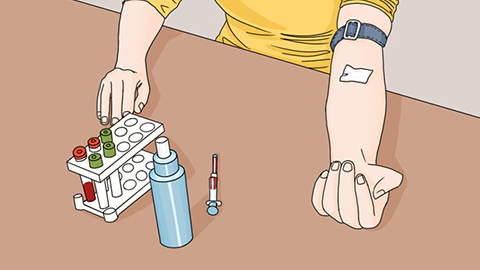Is fasting required for a uric acid test?
Generally, whether a uric acid test requires fasting depends on the specific circumstances. Usually, fasting is required for a uric acid test; however, if it is only for preliminary screening and precise results are not necessary, fasting may not be required. Detailed analysis is as follows:

Fasting is primarily required to obtain more accurate results. After eating, especially after consuming high-purine foods such as organ meats, seafood, and meat broths, uric acid levels may temporarily increase, affecting the accuracy of the test. It is generally recommended to stop eating after 8 PM the night before the test and to fast for 8–12 hours before the test to reflect true uric acid levels.
Situations where fasting is not required usually involve initial screening or urgent testing. In such cases, the accuracy of results is not highly emphasized, and testing can be performed without fasting, serving only as a reference. However, results obtained under these conditions may be less accurate and should not be used as the primary basis for diagnosis and treatment.
In the days before the uric acid test, maintain a light diet, reduce intake of high-purine foods, avoid alcohol consumption and strenuous exercise to prevent interference with test results. On the day of the test, if fasting is required, you may carry food with you and eat promptly after completing the test to avoid discomfort caused by prolonged fasting. Regular monitoring of uric acid levels helps detect abnormalities promptly and take appropriate measures.










